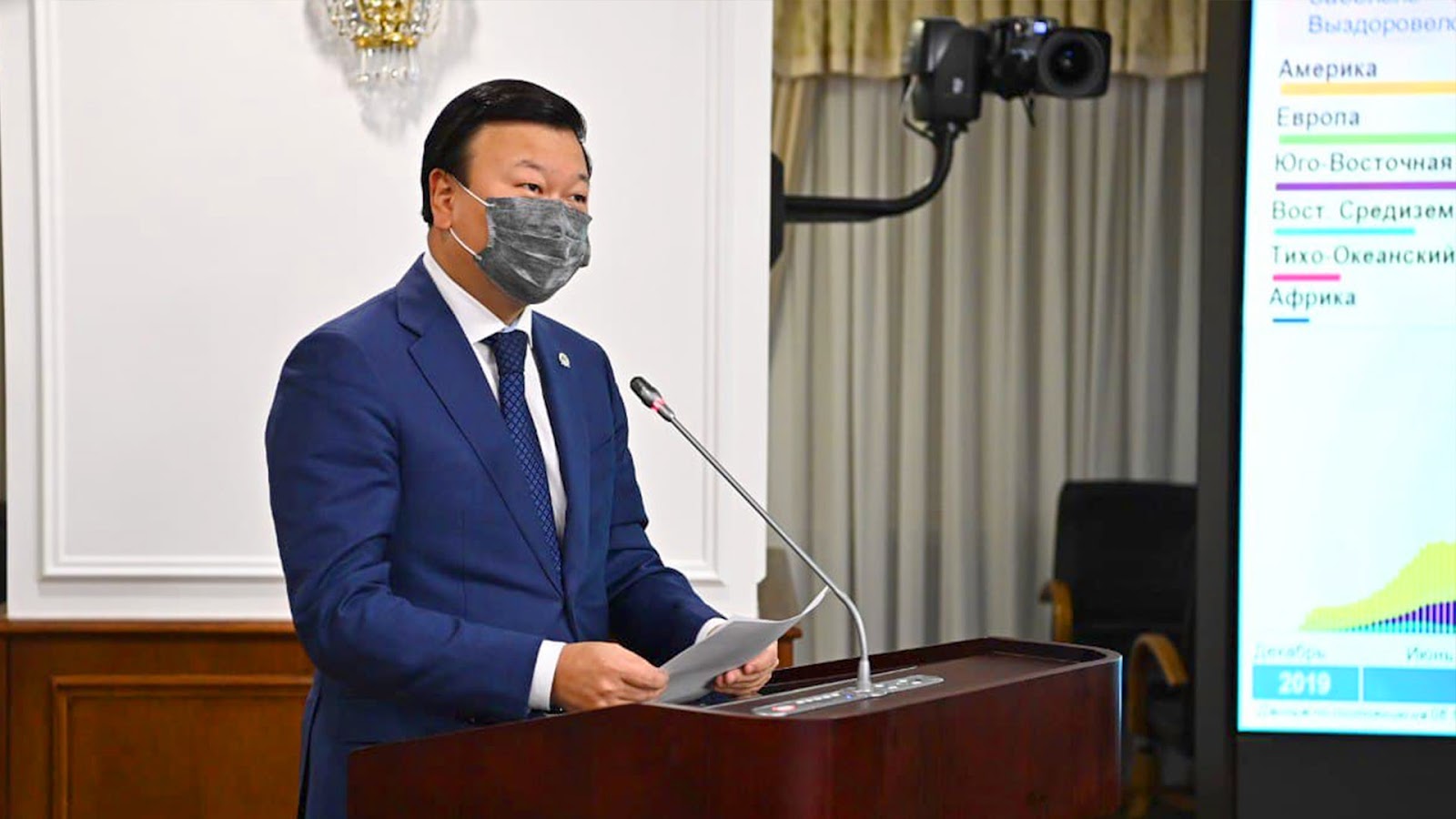NUR-SULTAN – The COVID-19 incidence rate has declined 28 percent over the past two weeks in Kazakhstan, said Kazakh Healthcare Minister at a government meeting last week.

Alexei Tsoy. Photo credit: primeminister.kz
The country confirmed more than 979,000 cases of coronavirus infection since the pandemic began. The reproductive rate is now 0.92.
“According to the WHO European Region, 25 of the 54 countries have seen an increase in incidence in the past two weeks. For the last 14 days, the greatest increase was observed in France, where the rate increased by more than 154 percent, in Portugal – more than 80 percent, Sweden – more than 60 percent, and Italy – more than 50 percent,” said Tsoy.
In Kazakhstan, no region is in the red zone, while Nur-Sultan city, Akmola, Karaganda, Pavlodar, Kostanai, and the North Kazakhstan regions are in the yellow zone. The green zone includes Almaty city, Shymkent, Atyrau, Aktobe, Almaty, West Kazakhstan, Turkistan, Zhambyl, Kyzylorda, Mangistau, and the East Kazakhstan regions.
“In Kazakhstan, the number of those who have recovered prevails over the number of those who have got sick. In November compared to October, the number of those who recovered is 1.6 times more than the number of those who fell ill. The occupancy of infectious disease beds is 24 percent, intensive care beds – 21 percent,” said Tsoy.
More than 8.8 million people in the country’s 19 million population received at least one dose and more than 8.2 people were fully immunized against the virus.
Since mid-November, Kazakhstan has also offered Pfizer-BioNTech to teenagers and women who are pregnant and breastfeeding. By now, more than 145,000 teenagers and over 35,000 women received the first dose of the vaccine, and overall, close to 15,000 have been fully immunized.
Tsoy explained the decision to revaccinate citizens so that now, from Dec. 8, all people who have completed vaccination with two doses, as well as those who have recovered from coronavirus infection are subject to revaccination in six months.
Now that the Omicron variant has spread to nearly 63 countries, according to WHO, fighting COVID-19 has become even more difficult.
Tsoy said that the new variant was not detected in Kazakhstan, but that the country was quick to impose travel bans on South Africa and countries where the variant was confirmed. “Full-genome sequencing of positive samples collected in all regions of Kazakhstan is ongoing,” he added.

